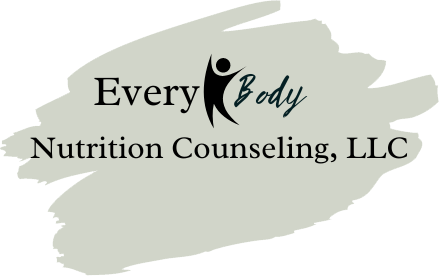Why a Non-Diet Approach?
What the research tells us about dieting:
Matheson EM, King DE, Everett CJ. *Click the image for full research article
Health is NOT Dependent on Weight
Research shows that certain behavior changes improve a person’s health status, regardless of weight. In a study of over 11,000 men and women, mortality rates decreased with more healthy habits, regardless of a person’s body mass index (BMI).
Though diet and exercise are often blamed for a person’s body, it is actually a lot more complicated. Genetics, medical conditions, medications, access to food, access to physical space, mental health, food preferences and age also play a role.
Bodies Come in Different Shapes and Sizes
Diets do NOT work
Many diets are inherently restrictive, focusing on cutting out specific food groups or severely reducing overall calorie intake. While this may lead to short-term weight loss, it's often unsustainable in the long run, leading to feelings of deprivation and ultimately causing individuals to revert back to their old eating habits at which point lost weight is regained and often additional weight is added.
Rhee EJ. * click the image to access research article
Harmful effects of weight cycling
Repeatedly losing weight and regaining weight are worse for metabolic health than staying at a higher weight. Research shows that weight cycling increases the likelihood of developing chronic illnesses, such as cardiovascular disease and diabetes.
Dieting in adolescence. *Click the image to access the research article
Negative Impact of Diet Culture on Kids
Dieting is associated with food preoccupation, distractibility, fatigue, and a tendency to overeat. Dieting also has been shown to impact mental health. Research shows that kids participating in a structured weight-loss program had a decline in self-esteem. Additionally, dieting is associated with a five-fold to 18-fold increased risk of developing an eating disorder. Dieting is rarely effective in the long term and actually often leads to more weight gain.
An Alternative Approach:
The EveryBody Way
The EveryBody way will help you break free from the detrimental impact of diet culture.
The goal is no longer unattainable or fleeting, rather the goal is learning to be in your here-and-now body, to find pleasure in eating, to feel nourished and satisfied by food, to feel invigorated by movement and to foster respect for your body. At a quick glance, weight-inclusive care appears to be a “do nothing” approach, but that couldn’t be farther from the truth. Instead the focus is on discovering what makes you feel your best.
The journey to food freedom and body respect will vary from person to person. No two clients are the same. At EveryBody Nutrition Counseling, LLC, I prioritize individualized care for each client. My approach is tailored to meet your specific nutritional needs, lifestyle, and goals and I will be there to support and guide you through the process.
I look forward to working with you!
What is Intuitive Eating?
Intuitive Eating provides a framework for tuning out diet culture messages and tuning into your body’s needs. Registered dietitians, Evelyn Tribole and Elyse Resch, developed 10 principles to help individuals find their way toward a better relationship with food and body. Their method has been well-studied (over 200 research papers to date) consistently showing improvements in things like:
Lower body mass index BMI (*While this result is found in research regarding Intuitive Eating, it is not the goal/focus of the framework)
Lower triglycerides
Higher HDLs (“good” cholesterol)
Higher self-esteem
Increased well-being and optimism
Body appreciation and acceptance,
Proactive coping skills and psychological hardiness
Unconditional self-regard
Pleasure from eating
Increased variety of foods eaten
Lower internalized thin ideal, eating disorders, emotional eating, and self-silencing





